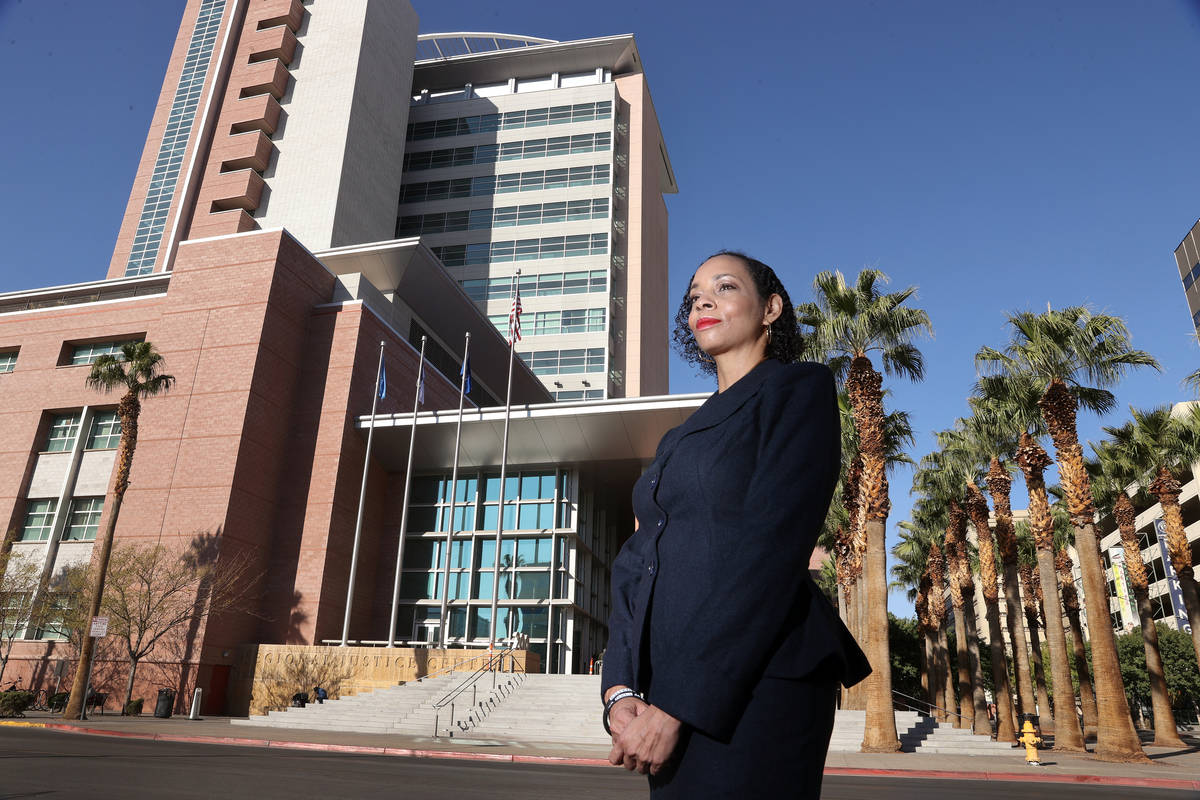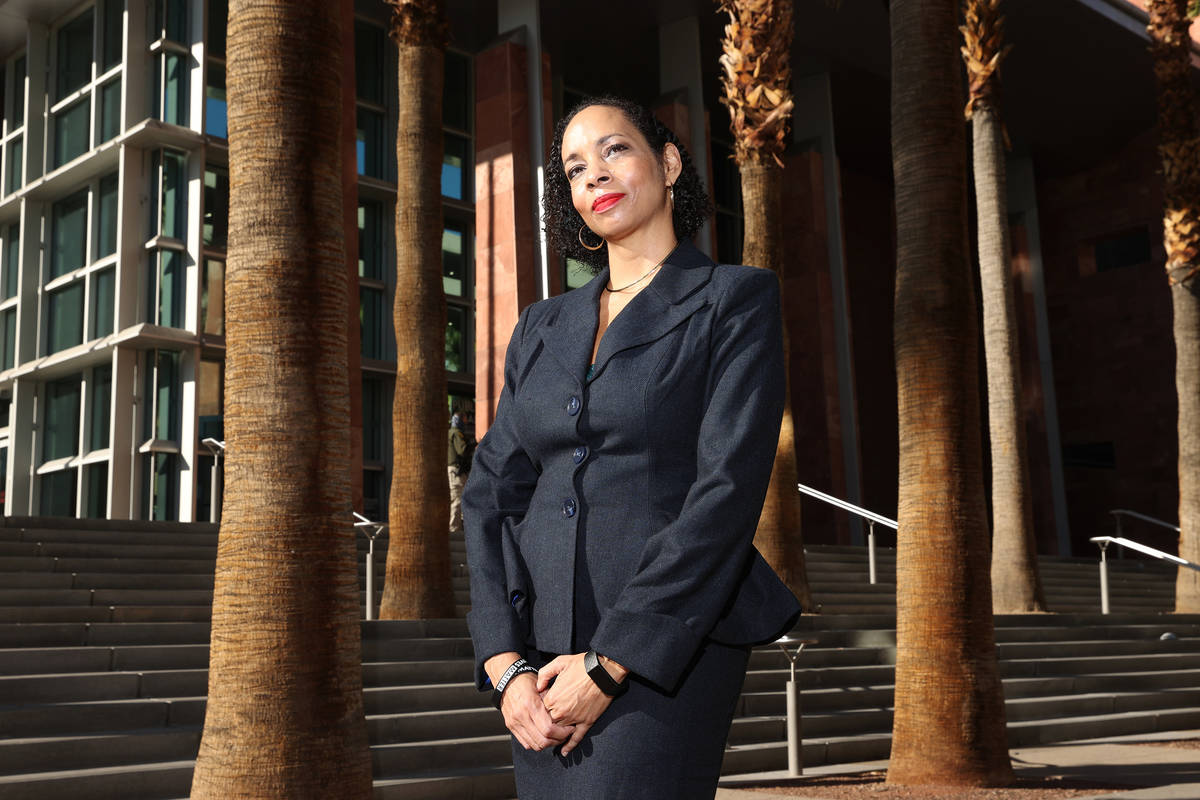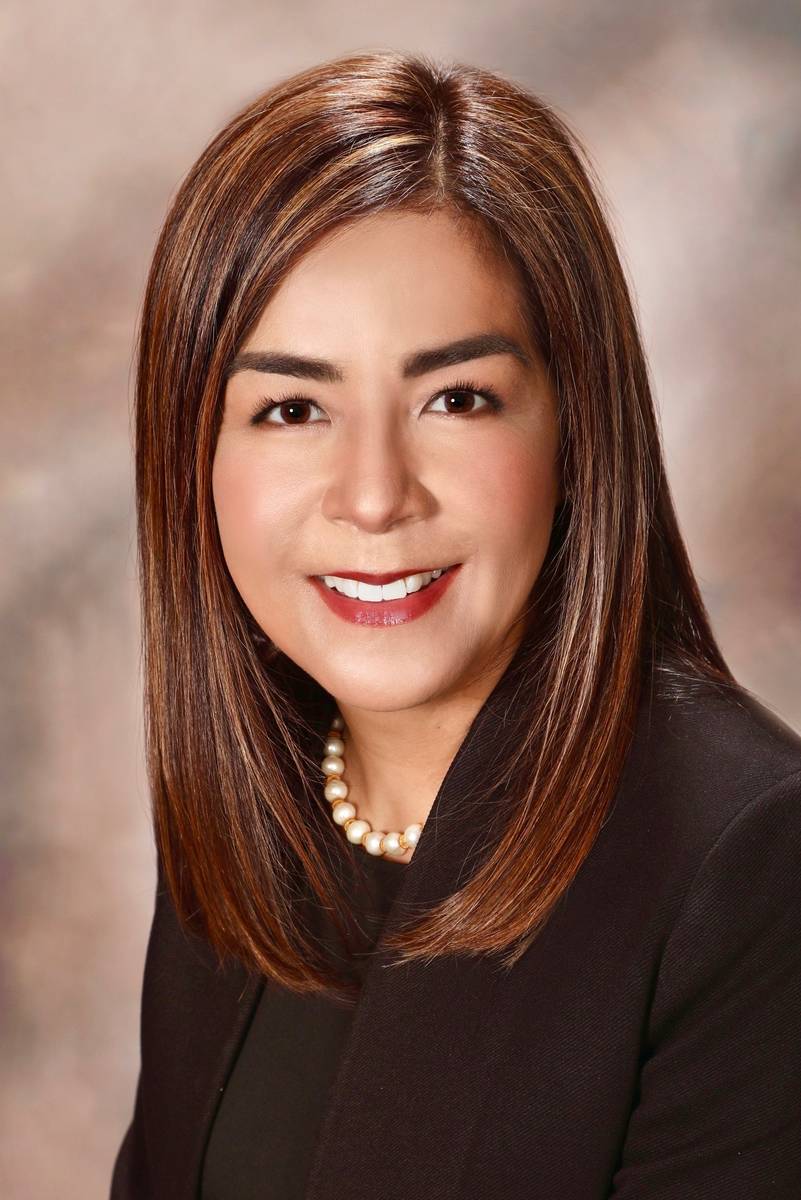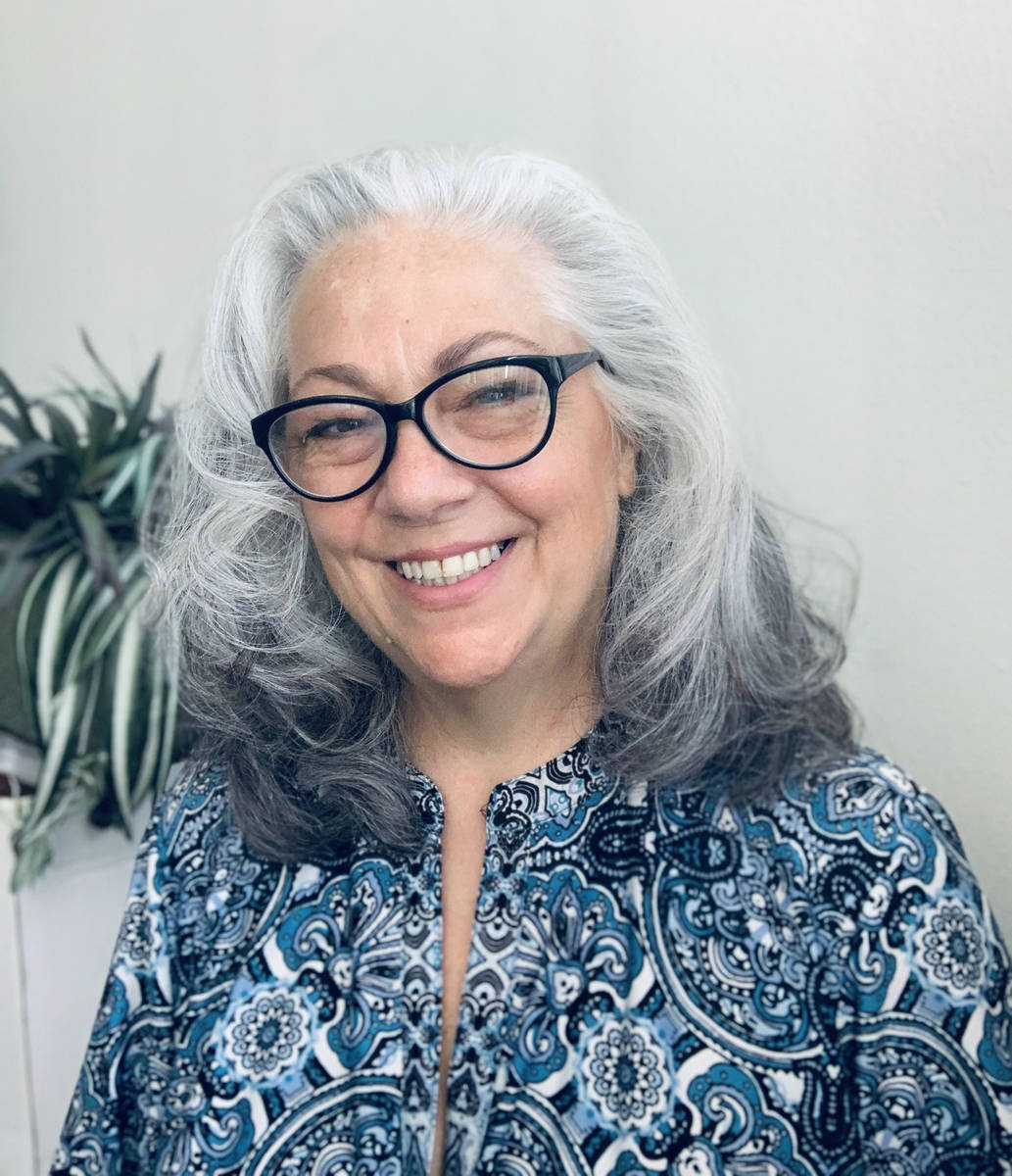Women dominate Clark County judicial races without breaking bank
A wave of women washed over Clark County court elections.
In some judicial races, voters were apparently not swayed by campaign signs along highways or ads flashing on their television screens and computer monitors.
Without raising or spending a dime on the contest, Deputy Public Defender Erika Ballou won a seat in Clark County District Court, defeating her male opponent by more than 9 percentage points.
“I never intended to raise any money,” she said. “I didn’t expect to win. I thought I’d get a little bit more name recognition and try again in a few years.”
Ballou and private attorney Dan Gilliam had emerged from a field of five candidates, including one other woman, after the June primary.
Through the election cycle, Gilliam raised more than $157,000 from fellow lawyers and others, according to the latest campaign figures available online.
A win without campaigning
Ballou did not campaign and declined to participate in the Review-Journal’s debates for the primary and the general elections. On social media, she used a pseudonym for her personal account, rather than publicly advertise her bid for elected office.
“I think it’s gross and creepy to have to spend money to get a job,” she said. “That doesn’t make any sense. It’s creepy to raise money from people who are going to be appearing in front of you. It feels icky to me.”
The only other District Court candidate who raised zero campaign dollars in 2020 — Todd Leventhal — lost to incumbent Jacqueline Bluth by more than 32 percentage points.
On election night, Ballou was working as a legal observer during a community event downtown. She said she wasn’t tracking the results.
“I’ve been in this community long enough that people either know me or know about me or should,” Ballou said.
She made headlines in 2016 when she refused to remove a “Black Lives Matter” lapel pin in court.
Perhaps Ballou’s most valuable currency in this year’s race, however, came in an early October endorsement from Vermont Sen. Bernie Sanders. In the presidential primary, Ballou campaigned and caucused for Sanders, who endorsed no other judges in Nevada. But she said she did not know how or why Sanders decided to back her.
Strong showing
Going into the 2020 election, there were two more women than men on the District Court bench. Starting next year, when the newly elected judges take the oath of office, 24 out of the 32 departments, or 75 percent, will be run by women.
Two men retired from District Court, while another was elected to the Nevada Supreme Court. Voters decided that each of their jobs should be filled by women.
In 15 of the 18 contested races, women defeated men. Only one race was between two men, while two incumbent judges — Michael Villani and Eric Johnson — defeated women.
Ballou was among several female public defenders elected in 2020. Carli Kierny defeated incumbent Richard Scotti, who raised almost $100,000 more than his challenger. Christy Craig, who raised just $14,000, knocked incumbent Rob Bare off the bench after he pulled in more than $360,000 for his campaign, the latest campaign figures showed.
Bita Yeager, a former public defender and Las Vegas justice of the peace who served as a hearing master before winning an election to District Court, won an open seat in a race against prosecutor Jacob Villani.
“I don’t know if this is a trend or this is something really limited to this cycle,” Yeager said. “So much could have potentially affected the outcome this way.”
Monica Trujillo, a special public defender, defeated Adam Ganz in a race for an open seat to become the first Latina elected to the District Court bench without having first been appointed.
She raised about $77,000 to win, after Ganz piled up more than $400,000, including $75,000 of his own money.
“It is important for the judiciary to accurately reflect society,” Karen Donohue, president of the National Association of Women Judges, wrote in an email to the Review-Journal. “The entry of women judges and judges of color into spaces from which they have been historically excluded is a positive step towards courts being perceived as more transparent, inclusive and representative of the people whose lives they affect.”
Craig agreed.
“Having those diverse experiences makes for a more well-rounded bench,” Craig said. “It makes the justice system better.”
In Family Court, women dominated as well. Starting in 2021, women will occupy each of six new seats added to the bench, with 16 of 26 positions won by female candidates. No woman lost a race for Family Court among seven races challenging men, though nine men ran unopposed and one man defeated another man.
Seeing a shift
Nevada League of Women Voters president Sondra Cosgrove recognized the shift on the bench in Clark County.
“I definitely think the voters are expressing that they want to see something different coming from the courts,” she said. “Courts have been very paternalistic. They’ve been very male-dominated … People think male — more punishment, more stern. People might think maternal instincts are more caring. They’re more forgiving.”
It may yet be difficult to determine whether voters want men to return to the bench in future elections, given such an unprecedented election cycle, with the county in lockdown or under pandemic restrictions for much of the year.
Cosgrove pointed out that the presidential election attracted more people to the ballots, and a woman was at the top of the ticket, as Vice President-elect Kamala Harris and President-elect Joe Biden won by a wide margin in Clark County.
Couple that with the death of U.S. Supreme Court Justice Ruth Bader Ginsburg and calls for criminal justice reform echoing across the country, Cosgrove said, “and it kind of makes sense that this would be an outcome” in judicial races.
Contact David Ferrara at dferrara@reviewjournal.com or 702-380-1039. Follow @randompoker on Twitter.




























